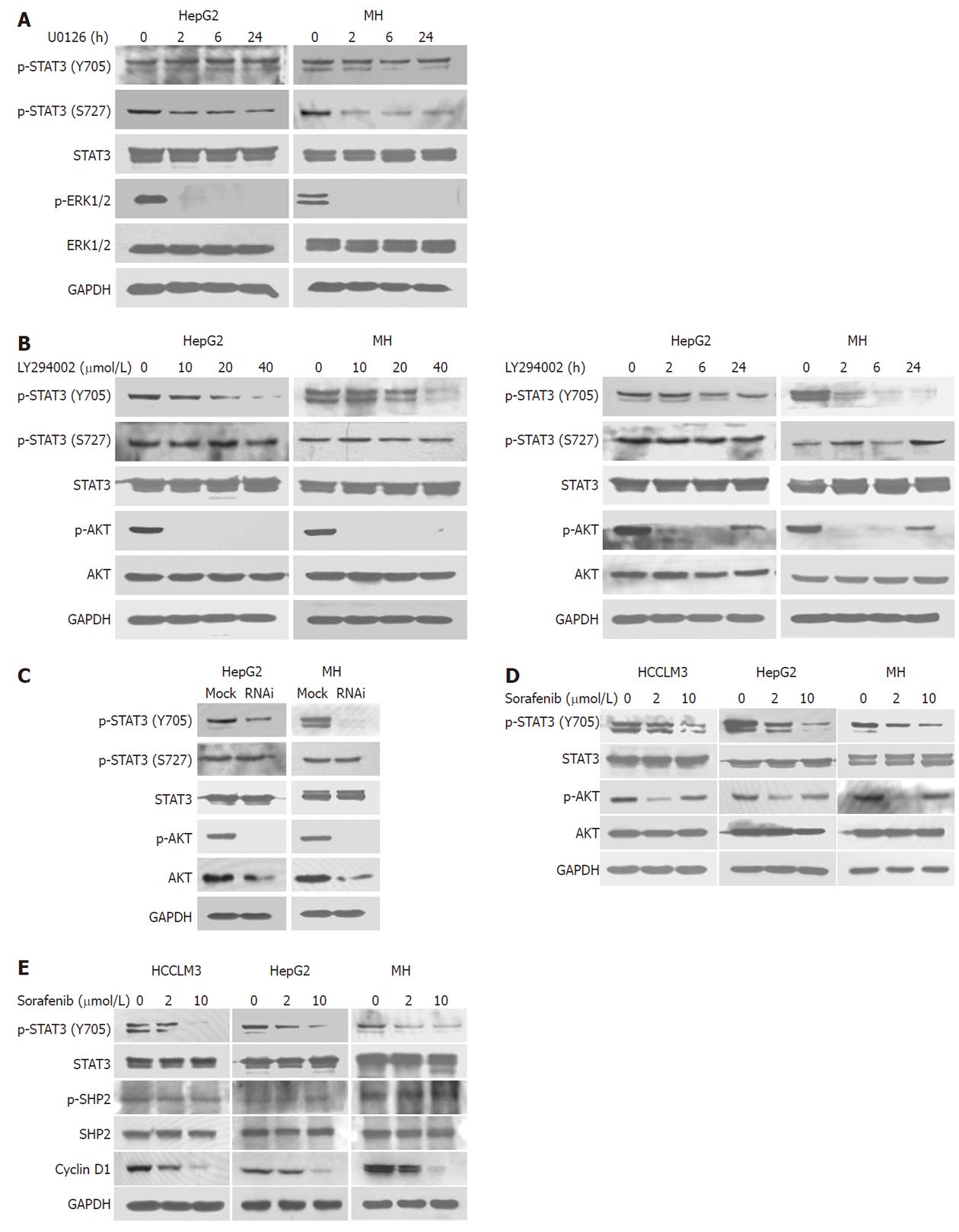Copyright
©2011 Baishideng Publishing Group Co.
World J Gastroenterol. Sep 14, 2011; 17(34): 3922-3932
Published online Sep 14, 2011. doi: 10.3748/wjg.v17.i34.3922
Published online Sep 14, 2011. doi: 10.3748/wjg.v17.i34.3922
Figure 2 Inhibition of signal transducer and activator of transcription 3 signaling in hepatocellular carcinoma.
A: U0126 (20 μmol/L) durably inhibited phosphorylation of signal transducer and activator of transcription 3 (STAT3) (S727) in HepG2 and Morris hepatoma (MH) cell lines; B: A 2-h exposure to LY294002 inhibited phosphorylation of STAT3 (Y705) in HepG2 and MH cells in a dose-dependent manner (left). LY294002 (20 μmol/L) durably inhibited phosphorylation of STAT3 (Y705) in HepG2 and MH cells (right); C: Akt silencing by siRNA inhibited phosphorylation of STAT3 (Y705, but not S727) in HepG2 and MH cells; D: A 2-h exposure to sorafenib inhibited phosphorylation of Akt, mainly at low concentration (2 μmol/L) in HCCLM3, HepG2, and MH cells; E: Sorafenib promoted Y705 dephosphorylation and obviously reduced the expression levels of cyclin D1 regardless of shatterproof 2 (SHP2).
- Citation: Gu FM, Li QL, Gao Q, Jiang JH, Huang XY, Pan JF, Fan J, Zhou J. Sorafenib inhibits growth and metastasis of hepatocellular carcinoma by blocking STAT3. World J Gastroenterol 2011; 17(34): 3922-3932
- URL: https://www.wjgnet.com/1007-9327/full/v17/i34/3922.htm
- DOI: https://dx.doi.org/10.3748/wjg.v17.i34.3922









